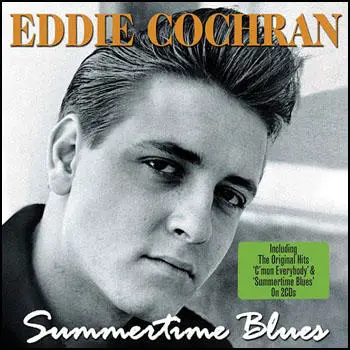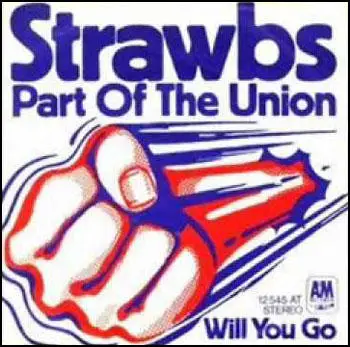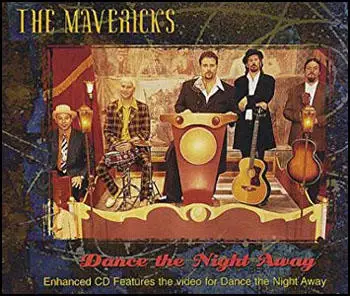Musical Memories of Peter Balderstone
Eddie Cochrane, Summertime Blues (1958)
What are my first memories of music – listen with mother/2-way family favorites/workers playtime? All these but the first time I really started to engage with music I was about 14 and on holiday with parents and family friends – realised potential for meeting girls. There was a club house at the caravan site and they had a resident band whose signature tune was Sumertime Blues.
The Rolling Stones, Little Red Rooster (1965)
The first record I ever bought was this although this was the B side (Come On was the A side). I think you were either Beatles or Stones in the early 60s – I was Stones. However, the next one I bought was the Beatles Twist and Shout EP. Other early favourites were Yardbirds, Manfred Mann, Julie Driscoll, Byrds
The Byrds, Mr Tambourine Man (1965)
I liked the Byrds from the start. When I was 15 or 16 I bought a guitar and like many other kids decided to be a rock star. So, armed with my guitar, and Bert Weedon’s Play in a Day I set out on my performing career. Bert’s guitar tutor was the starting point for many of rock’s great guitarists but they clearly got more from it than I did. Our band “Ferd’s Five” had one performance: as I remember our repertoire was rather limited (Jonny B Goode and Roll over Beethoven). I wasn’t too discouraged though as Ferd was a bit of a control freak (he had the electric guitar). So I moved to folk music. Tambourine Man was the first song I performed successfully to a proper audience – on an exchange visit to the US with the children of the family I was staying with, in a Folk Club in Boston Mass. We must have looked like the von Trapp family.
On return I formed a folk group with two friends and we became the “New Trilogy” and played folk clubs in mid Warwickshire. In the mid-sixties there were a lot of clubs and you could go to a different one each night – free entry and a pint if you got up and sang, so off we went. We were a bit derivative but had a great time for a couple of years. When we were crap we were very crap but mostly we were OK, and I discovered the buzz of performing and the real buzz you get when it goes well.

Martin Carthy, Seven Yellow Gypsies (1969)
Martin Carthy was/is the best British folk guitarist in my opinion and I saw him a number of times, lastly in a play at the Royal Court with Steeleye Span.
Liam Clancy, Patriot Game (1999)
This is a really poignant song but with an underlying anger by Brendan Beehan.
Young Tradition, Bright Morning Star (1968)
I could never play guitar like Martin Carthy, or sing like Liam Clancy, but I could, like many others, stick my thumb in my trouser belt, cup my hand behind my ear, and drone down my nose to some good old unaccompanied harmony.
In 1968 I went off to university. None of my university friends had any interest in folk music and the group I had been in had disbanded as we all went our separate ways so although I returned to my old haunts from time to time, folk music gradually faded from my life.
Strawbs, Part of the Union (1973)
By this time I had become a bit of a lefty and began a bit of political activity. I became a student representative on the university committee although this was a waste of time; heavily populated by people who had been big in their school debating societies and knew all about points of order and points of information and motions, all of which had previously passed me by.

Simon and Garfunkel, Me and Julio Down by the Schoolyard (1982)
Couldn’t not have a Simon and Garfunkel song and it’s very hard to choose one. They are part of my early adulthood, especially my university years. No particular reason for this choice apart from just liking it
Jacqueline Du Pré, Elgar Cello Concerto (1967)
I wanted to include one classical piece as I love classical music. Particularly cello music: perhaps I have a melancholy nature. I had a version by Mstislav Rostropovich but Ron Payne said that his version was inferior to the Jacqueline Du Pré version so I’ve gone with that. Elgar wrote the concerto in 1919, just after the First World War. Appalled and disillusioned by the suffering caused by the war, he realized that life in Europe would never be the same after such destruction. His first reaction had been to withdraw from composition, and he wrote very little music during the war's first four years. Then, over a period of twelve months - from August of 1918 to the following August - Elgar poured his feelings into four works that rank among the finest he ever composed. The first three were chamber works in which he developed a new musical voice, more concise and subdued than his previous one. The fourth work was the Cello Concerto, Elgar's lament for a lost world
Marty Robbins, This Time you gave me a Mountain (1968)
Moving on. My first marriage had ended and I had met Julie whose first marriage had also just ended. We each had a young child, although mine didn’t live with me. We decided to get married. Both our parents had seen a TV documentary which described the ends to which children of a first marriage would go to derail the second marriage: all were worried! Julie and I were visiting her family, who were very fond of Country Music. The next piece of music came on and they all sang it to me. I was a bit nonplussed. The children didn’t succeed!
Mavericks, Dance the Night Away (1997)
We both like dancing. First we tried ballroom/latin which we were enjoying but didn’t like the way it was taught so after a while gave up. Sometime later we discovered modern jive which we really loved, and still do and we can still strut our stuff. “Dance the night away” is the tune that gets us on the floor without fail.

Van Morrison, Brown-eyed Girl (1967)
Another of our dancing tunes.
Gerry Rafferty, Baker Street (1978)
When I was in my early 60s I decided that I would like to play an instrument again (my guitar being long gone) and chose the saxophone. I’m not sure why I chose it as my experience with woodwind ended age 10 when I gave up the recorder. Probably I thought it looked cool and my main client at the time had started the sax at about the same time and I thought if he could do it then I was sure I could which was rather arrogant as he went through the grades up to grade 8 and I haven’t.
I think it’s my defence against dementia – a new language and a new set of motor skills. I regret that I didn’t take more interest in music when I was at school but that was the sixties and you didn’t need to be able to read music! Also, for some reason I didn’t get on with the music master. Anyway, if you play the alto sax, at some point you want to play Baker Street. It is played by Raphael Ravenscroft and it has been claimed to be "the most famous saxophone solo of all time". However, Ravenscroft stole it from Steve Marcus and originally appeared on the 1968 jazz track Half a Heart.
Stan Getz, Desafinado (1962)
Another tune that I’m trying (fairly successfully) to play. My neighbour is a retired jazz drummer (among other things) toured with Ella Fitzgerald and others and he has been trying to bring me to the ways of righteousness art jazz, taking me down to the Hare and Hounds to listen to selected jazz sax players. Unfortunately I don’t really like improvised music! I can appreciate the virtuosity and the physical technical skill; I can appreciate the musicality because if you don’t understand scales and chord structure it can sound dreadful. I don’t like it though, and I certainly can’t do it!
Glenn Miller, Moonlight Serenade (1939)
Three years ago I joined the U3A orchestra and this has reignited my enjoyment of making music with other people, for other people. In the three years we have grown from 6 to over 30 and it has been and continues to be a really enjoyable and rewarding experience. My playing and musical knowledge is (slowly) improving and my admiration for people who can actually play properly is enormous!
My main memory is playing in a joint concert in Cornwall last year playing in a group with 45 other musicians was truly memorable. Why this piece? It is the sort of ensemble music that I really enjoy playing. When we got our first record player all those years ago one of the first records my M&D bought was a Glenn Miller LP and another of their early favourites was Frank Sinatra Come Fly with Me. I didn’t think at the time that I could ever like that sort of music. But I do now.
